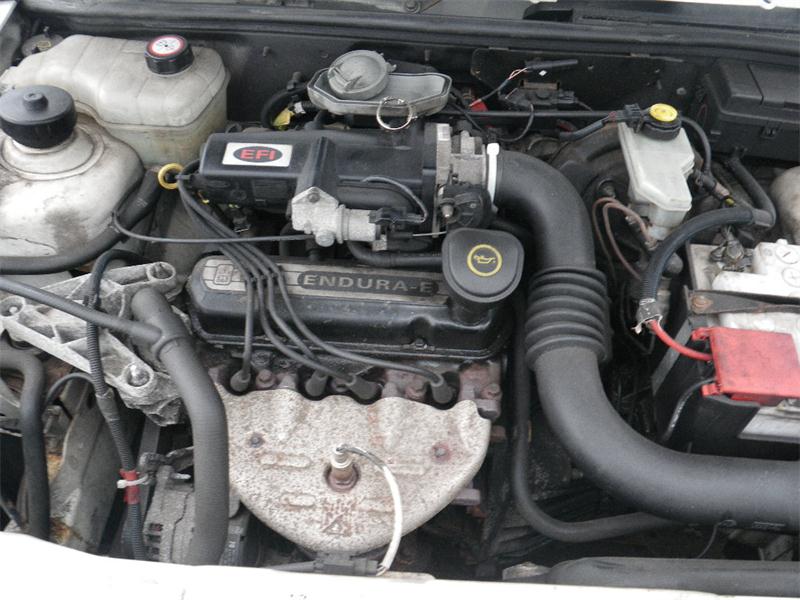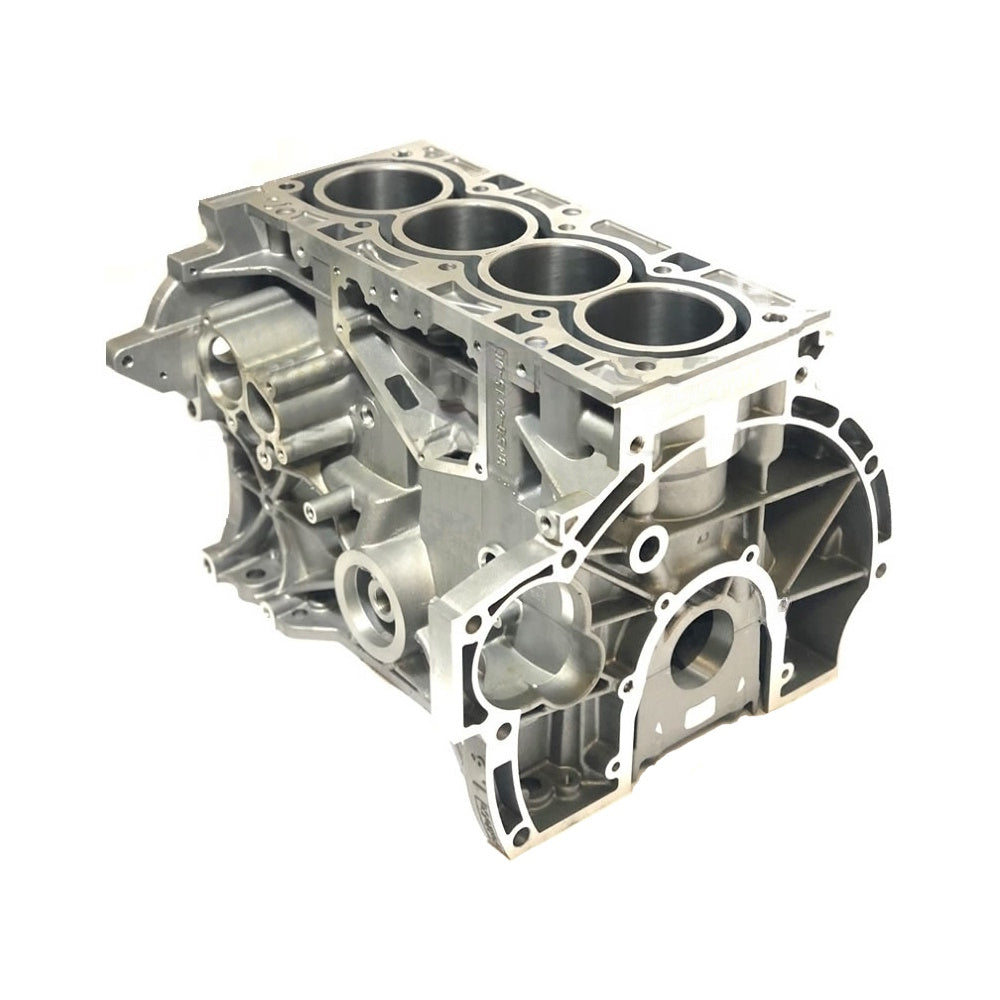Upgrade Your Ford Fiesta Engine for Better Fuel Economy and Power
Upgrade Your Ford Fiesta Engine for Better Fuel Economy and Power
Blog Article
The Future of Engines: Advancements Driving Sustainable Power Solutions
As the automotive market browses the crucial shift in the direction of sustainability, the future of engines is significantly defined by groundbreaking technologies. Electric engine advancements, along with promising advancements in hydrogen fuel cells and biofuels, are improving the landscape of power options. The appearance of crossbreed systems additionally complicates this advancement, providing both opportunities and challenges to decrease emissions successfully. Paired with the integration of expert system in engine layout, these technical strides raise essential concerns concerning their long-lasting practicality and influence on traditional paradigms. What might this indicate for the industry and customers alike?
Electric Engine Advancement
The development of electrical engine advancements indicates an essential shift in the aerospace and auto sectors, driven by the urgent need for lasting alternatives to fossil gas. This shift is characterized by significant innovations in battery modern technology, power electronic devices, and electric motor design, which collectively boost the efficiency and performance of electric engines.
Recent technologies have resulted in the development of lighter, extra energy-dense batteries, such as lithium-silicon and solid-state batteries, which assure longer ranges and shorter charging times. In addition, renovations in electric motor effectiveness, such as using irreversible magnets and advanced cooling systems, enable electrical engines to operate properly under differing problems. These enhancements not only boost lorry performance but also add to a reduction in general energy usage.
In addition, the integration of innovative software formulas has actually optimized power administration in electric vehicles, permitting regenerative stopping and predictive charging strategies. As makers significantly welcome electrical propulsion, the vehicle and aerospace markets are witnessing a standard shift towards greener technologies. This development not only meets governing needs but likewise straightens with customer choices for eco pleasant transport remedies, strengthening electrical engines as a cornerstone of future lasting flexibility.
Developments in Biofuels
As the auto and aerospace sectors significantly focus on lasting power resources, developments in biofuels become a complementary service to electrical engines. Biofuels, originated from natural products such as crops, waste, and algae, offer a cutting-edge avenue for lowering greenhouse gas discharges and dependence on nonrenewable fuel sources.
Recent study has focused on improving the performance and sustainability of biofuel manufacturing. Second-generation biofuels use non-food feedstocks, lessening competition with food supply and reducing environmental impact. In addition, advancements in artificial biology have actually made it possible for the design of bacteria to create biofuels better, bring about higher returns and lower production costs.
Furthermore, the growth of drop-in biofuels permits seamless assimilation right into existing framework, making it possible for a smoother shift for sectors commonly based on nonrenewable fuel sources. ford fiesta engine. These gas can be used in present engines without modifications, promoting their fostering throughout different sectors
Investments in biofuel innovation, along with encouraging plans, are necessary to drive development and scalability. As the international neighborhood seeks to deal with climate adjustment, biofuels supply a pragmatic, instant option that lines up with the overarching objective of sustainability in transport and air travel.
Hydrogen Fuel Cell Modern Technology
A growing number of companies and scientists are exploring hydrogen gas cell modern technology as a viable option to standard power sources in transport and energy systems. This technology converts chemical power from hydrogen right into electrical power via an electrochemical reaction, with water as the only byproduct, making it an eco-friendly alternative.
The core of hydrogen gas cells is the fuel cell pile, where hydrogen molecules are split into electrons and protons. The flow of electrons creates electrical energy, while protons relocate with a membrane to integrate with oxygen from the air, forming water. This process leads to high efficiency and low exhausts, placing hydrogen gas cells as a critical player in the transition to sustainable energy.
Considerable improvements have been made in enhancing the longevity and efficiency of gas cells, alongside minimizing prices with innovative manufacturing methods. The advancement of hydrogen manufacturing approaches, such as electrolysis powered by renewable energy resources, boosts the sustainability of the general system. As infrastructure for hydrogen refueling expands and production approaches become more effective, click resources hydrogen fuel cell technology holds fantastic pledge for decarbonizing numerous fields, consisting of sturdy transportation and fixed power generation.
Crossbreed Equipments and Their Impact
Hybrid systems represent a significant development in lasting engine innovation, merging traditional inner burning engines with electrical propulsion to maximize energy effectiveness and reduce emissions (ford fiesta engine). This double method allows lorries to make use of both power sources, allowing higher flexibility in power usage and decreasing reliance on fossil fuels

Along with ecological advantages, crossbreed systems provide consumers a sensible shift in the direction of completely electric lorries. They relieve variety stress and anxiety by integrating the benefit of gasoline with the benefits of electric propulsion, making them an eye-catching alternative for a bigger audience. As manufacturers spend in hybrid innovation, the advancement of more innovative battery systems and light-weight materials remains to enhance efficiency. On the whole, hybrid systems stand for a critical action in the direction of achieving lasting transport and attending to the immediate requirement for eco-friendly power solutions.
The Role of AI in Engine Style
Leveraging sophisticated algorithms and device understanding techniques, the vehicle a fantastic read sector is progressively incorporating expert system (AI) into engine style procedures. AI improves the performance and performance of design by evaluating huge datasets to recognize optimal setups and efficiency criteria. This capacity allows engineers to replicate numerous operating problems and forecast engine actions under several circumstances, significantly decreasing the time and expense connected with typical prototyping approaches.
Furthermore, AI helps with the development of advanced materials and burning procedures tailored for sustainability. By enhancing fuel effectiveness and decreasing exhausts, AI-driven layouts line up with worldwide efforts focused on minimizing the carbon impact of automobile engines. Artificial intelligence formulas can additionally predict upkeep demands, causing enhanced dependability and longevity of engine components.
Moreover, AI is instrumental in the combination of electrification technologies, such as crossbreed systems, visit this site where it can maximize battery administration and energy healing procedures. As the industry relocates in the direction of more sustainable power services, the role of AI in engine layout comes to be progressively important, driving development and enhancing the efficiency of future engines. Eventually, the partnership in between AI and engine style advertises a new era of smarter, cleaner, and a lot more efficient auto modern technologies.

Verdict
To conclude, the future of engines is being shaped by a merging of innovative innovations that focus on sustainability. Electric engine innovations, biofuel growths, hydrogen gas cells, and hybrid systems collectively add to a substantial decrease in exhausts and ecological impact. Furthermore, the combination of man-made knowledge in engine style improves effectiveness and efficiency. These transformative remedies emphasize a dedication to developing a cleaner, a lot more lasting automotive landscape, ultimately benefiting both culture and the setting.
Electric engine developments, alongside promising growths in hydrogen gas cells and biofuels, are reshaping the landscape of power solutions. Additionally, renovations in electric motor efficiency, such as the use of long-term magnets and advanced cooling down systems, make it possible for electric engines to operate efficiently under varying problems. By optimizing gas effectiveness and reducing emissions, AI-driven layouts line up with global campaigns aimed at lowering the carbon impact of auto engines. As the industry relocates towards more lasting power options, the role of AI in engine layout ends up being significantly crucial, driving development and boosting the performance of future engines. Electric engine innovations, biofuel advancements, hydrogen gas cells, and hybrid systems jointly add to a significant decrease in exhausts and ecological effect.
Report this page